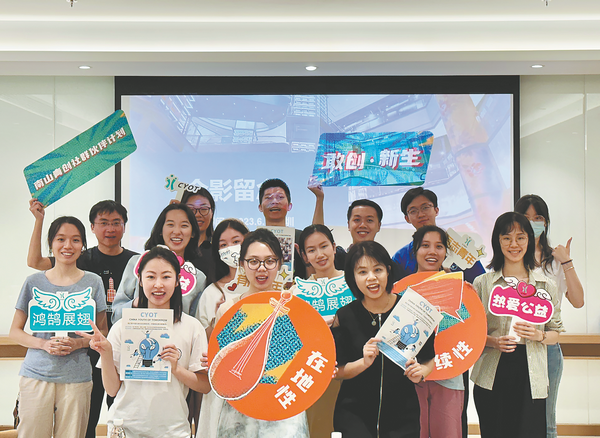

Born into an ordinary family, Ye Jiayi, a 24-year-old from Wenzhou, Zhejiang province, studied hard to get into university, eager to leave her hometown for a more promising career, a broader life, and the opportunity to contribute more to her family and society.
This is the story of millions of first-generation college students in China.
As the first college student in her family, Ye knew she would face more difficulties in decision-making and personal growth than many of her peers. Due to a lack of understanding about university majors and the absence of mentors to guide her, she only realized after starting university that she did not like her chosen field. Fortunately, she later joined the master's program in law at Zhejiang University, which she had longed for.
However, after reaching a major crossroads in her career, she once again felt uncertain. But this time, a public welfare project provided her with the guidance she needed.
China Youth of Tomorrow (Honghu Youth), a social enterprise focused on educational equity, established its core talent development project, the Honghu Plan, in 2019.
In Chinese culture, "honghu" is a large swan with lofty aspirations. The Honghu Plan specifically supports first-generation college students in China — those whose immediate family members have not received higher education.

Ye remembers the feelings of inferiority she had growing up.
"The economic support my family could provide was limited, and I missed many learning opportunities, such as paid courses and forum activities," she said. "Thankfully, after becoming part of the Honghu Plan, I gained access to a wealth of resources."
Since joining the program at the beginning of 2023, Ye has benefited from seven months of free, systematic guidance, including a series of courses, mentor interactions, and peer community activities.
The courses covered fundamental skills like Office software and email writing, along with job-related topics such as resume writing and career planning.